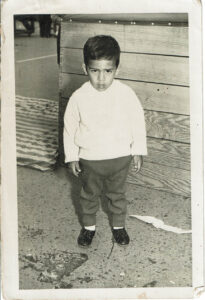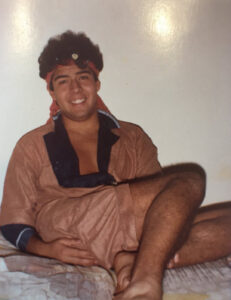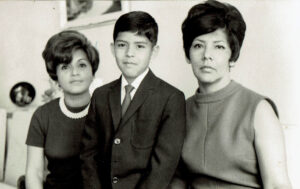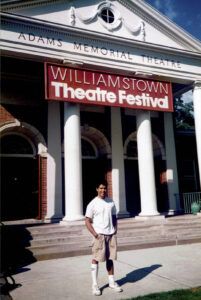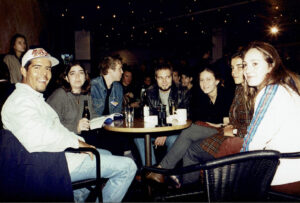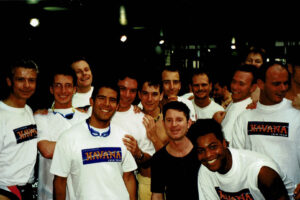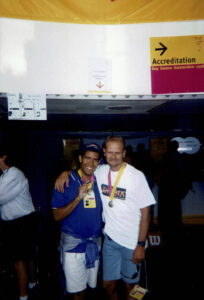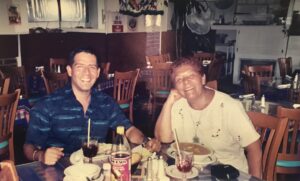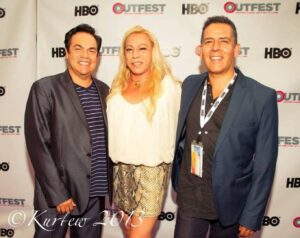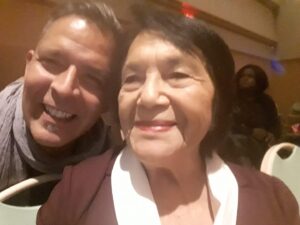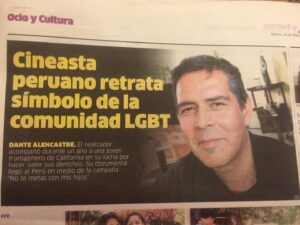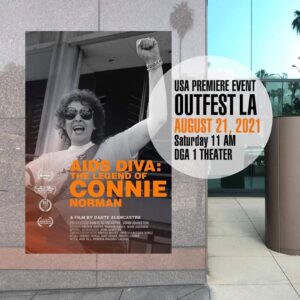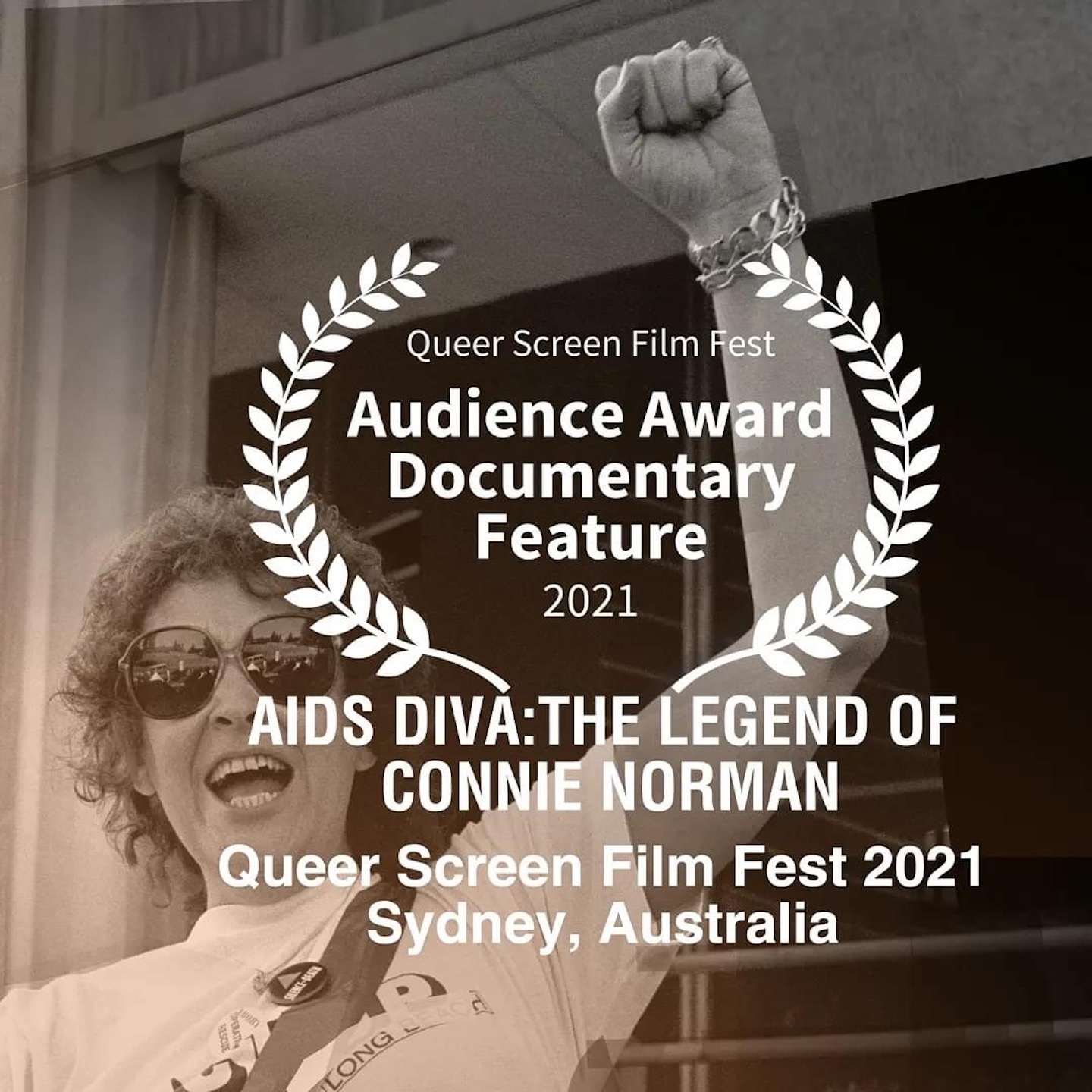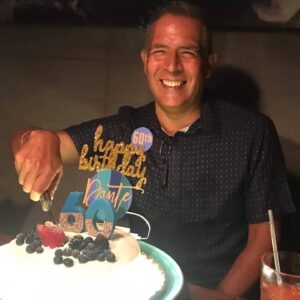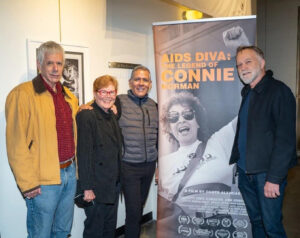Dante Alencastre was born in Lima, Peru in 1961. He was raised by his single mother, a nurse, in an apartment alongside his grandfather and aunts. When Dante was 13, he and his mother left Lima for New York City.
As a child, Dante’s relationship with queerness was buried beneath cultural, religious, and familial norms. His family never spoke about sex or intimacy, and the bullying he experienced in elementary school only confused him. “I was soft, I was creative, I was colorful, I was bright,” he says. “I thought they teased me because they were jealous.”
In New York, Dante attended a Catholic school. While listening to his friends talk about their new, liberated experiences, he began to quietly unpack his repression and shame. Still, he hesitated to come out to his family. After high school, Dante attended Columbia University, where he planned to fulfill his childhood dream of becoming a doctor.
At Columbia, Dante made new, “less collegiate” friends: people who expressed themselves through clubbing, through gender-bending, and through art. They taught him “what queer life was about.” By his junior year, Dante had pivoted away from his medical studies, focusing instead on French literature. He spent a summer studying under the playwright Ionesco and became involved with the CU Players back at school. While directing his second play, he met his first boyfriend and made the choice to leave his “club kid” life behind.
Following his break-up with his college partner, Dante did a year-long program at the Royal Academy of Dramatic Arts. On a weekend trip to Amsterdam, he met another former partner and eventually moved to the Netherlands to live with him. There, he became re-involved with the club scene, and began interviewing entertainers and artists for a cable television show on LGBTQ+ nightlife.
Soon after, Dante returned to Peru, where he hoped to continue his interviews but struggled to find queer people who felt comfortable in front of the camera. Then, he met Gabriela, a trans woman who was willing to share her story and introduce Dante to her community. His documentation of their experiences resulted in his first film, En El Fuego (In the Fire). When it premiered at Outfest, the film won the Audience Award, and Dante felt like he had finally found his purpose: to tell people’s stories.
En El Fuego represented the beginning of Dante’s body of documentary work, which frequently highlights the overlap between the Latine, transgender, and activist communities. It resulted in the follow-up film El Fuego Dentro (The Fire Inside), which captured the updated successes of the same Peruvian group five years later. Dante’s films also include Transvisible: The Bamby Salcedo Story (2013), which honors the life of a trans-Latina activist, and Raising Zoey (2016), which tells the story of a 13-year-old trans girl fighting for her right to self-identify in school. Dante’s latest film is AIDS Diva: The Legend of Connie Norman.
In 2018, Dante became the Executive Director of the California LGBT Arts Alliance. In 2021, he received the Rainbow Key Award in recognition of his outstanding artistic and cultural contributions to the city of West Hollywood. As he states in his interview, Dante’s films “transcend language, culture, and time.” He credits his success to the support he was given from the very beginning, especially from his beloved mother; “I always hear my mom in the back of my head, always telling me, you can do it. Tu sí puedes.”

